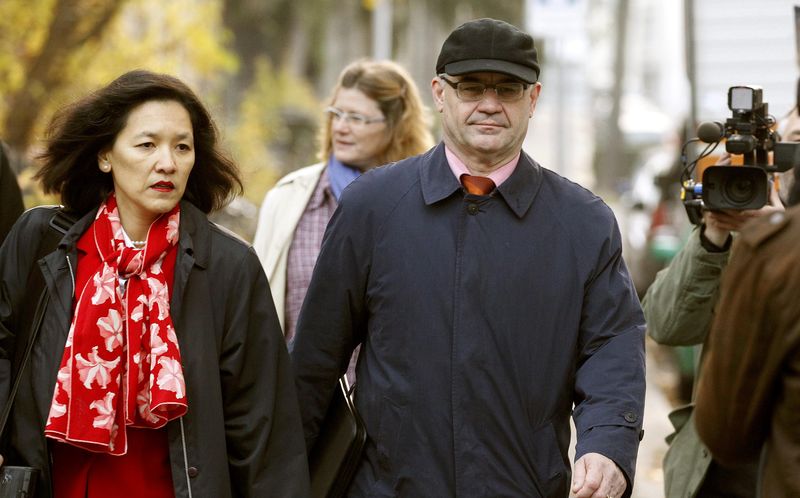By Joshua Franklin
ZURICH (Reuters) - The trial of a former Julius Baer (VX:BAER) banker accused of breaching Swiss banking secrecy laws by handing over confidential data about offshore clients to WikiLeaks was halted on Wednesday after the defendant collapsed.
Rudolf Elmer, a former senior executive at Baer's Cayman Islands' office, fainted outside the courtroom in Zurich after earlier complaining of a headache. The 59-year-old, who denies the charges, was taken away by ambulance and a spokesman for the court said it was unclear when his trial would resume.
The case comes as Switzerland is seeking to preserve its domestic banking secrecy rules after, under global pressure, it agreed in May to join other countries in sharing tax information for international account holders.
The former banker has been under investigation since 2011 for giving WikiLeaks founder Julian Assange two compact discs during a news conference in London. Elmer said at the time they contained confidential data on about 2,000 offshore banking clients but on Wednesday he told the court they were empty.
Elmer - who has previously described himself as a "Gandhi of Swiss tax law" and said he wants to draw attention to financial abuses - was charged in July. He could face jail if found guilty.
He is also accused of attempting to pass confidential client files to the German finance ministry in 2009.
In the past, some German states have bought data leaked from Swiss banks in order to get names of their citizens who evade taxes, but it is not clear if Elmer's case has any connection to this.
Before his collapse, the former banker - unshaven and dressed casually in trainers, white trousers and a hoodie - had denied breaking bank secrecy laws, responding with a soft "Yes" when asked by the judge if he felt innocent.
He said in a brief statement that the CDs he handed to Assange in 2011 were empty and also denied passing confidential client data to the German finance ministry.

Switzerland's law of emphasising the duty of loyalty that employees have to their employers means its whistleblowers are afforded less protection than in many other countries.
(Writing by Caroline Copley; Editing by Pravin Char)